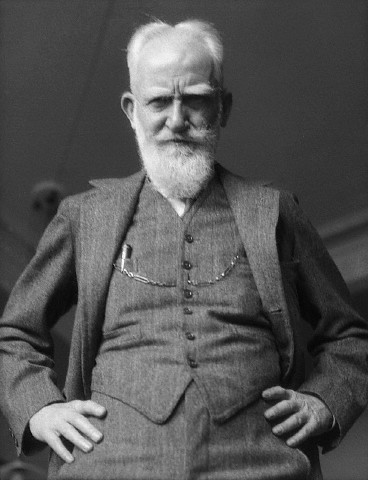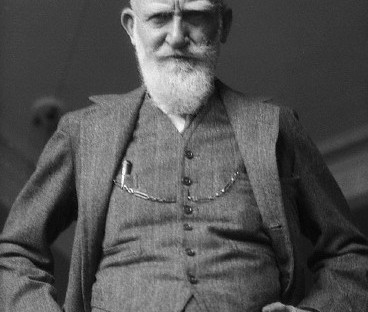 George Bernard Shaw’s ‘Man and Superman’.
George Bernard Shaw’s ‘Man and Superman’.
The phrase from Shaw’s drama series written in 1903 has survived the test of time to become a consistent irritation to teachers far and wide. Many of us love Shaw, but really? What was he thinking?
Well, as we start a new year and I begin my new role at the ILA in The Hague, I have been thinking more about what it takes to be a great teacher and why the view persists on some level that teachers somehow can’t ‘do’. What is the difference in teaching that makes a difference from Shaw’s turn of the century view?
Having spent five years at Oxford University Press I cannot help but refer to the trusty Oxford English Dictionary for the Holy Grail in my quest. What does it mean for those who ‘can’?
As an independent verb.
- To know or have learned (a thing); to have practical knowledge of (a language, art, etc.). to can by heart: to know by heart. to can one’s good: to know what is good for one. Obs
Shaw in his eloquent verbiage was suggesting that teachers are those that do not know or have not learnt their discipline. They are the embodiment of the failed artist that we would read about in Dickensian novels who would precariously balance above the breadline through the only apparent outlet available to them, teaching, as they had failed in their field.
Shaw not only makes the assumption that those with knowledge in a discipline would want to do that discipline as a primary career but also makes the further assumption that teaching is not a discipline in itself and is somehow deficient in its requirement for active engagement, the ‘doing’. That is why twenty-first century teaching is different. We now better understand how children learn and the importance of subject knowledge alongside pedagogy and practice. As a profession, we are investing in the ‘can’ of teaching and learning through professional learning networks, research and interrogation of what really works.
This is clearly exemplified through the teaching of reading. Can you be an accomplished reader and therefore have the innate skill to teach a child to read? In this instance, you need to know more than merely how to read yourself, the ‘can’. You have to know how children learn to read as well as the personal discipline of reading itself. You have to understand phonic progression, strategies for developing blending skills, fluency and comprehension. You have to be a reader+. Teaching is about going deeper and deeper within a subject and then eking out the very essence and building blocks of skills and knowledge from within using carefully honed and practiced skills to support the pupil’s learning.
So, in today’s age, not only would I question Shaw’s assertion that teaching is not in itself a discipline but also the fundamental misconception, in Shaw’s view, that you can teach without knowledge. I see teaching as the ‘can’ and more; can+ is how I would like to view it. It requires significant knowledge, expertise and pedagogical understanding.
Every time I now hear Shaw being quoted, I will rephrase to ‘Those that can do and those that can, and can do more (can+), teach’! On that note, I wish everyone a fabulous 2016-2017 as we strive to do, and do more!


To quote Aristotle; those who know do, those that understand, teach. (Paraphrasing)
LikeLike